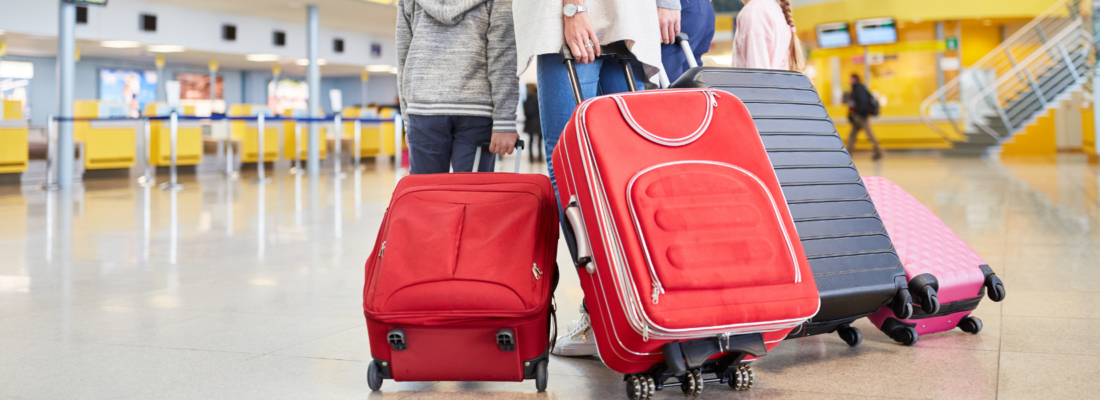
Hackers Are Watching: Follow These Simple Steps for Safe Holiday Traveling
As holiday travel picks up, hackers see a prime opportunity to exploit travelers who may let their guard down on their digital security. Security risks like phishing, public WiFi and lost devices can easily compromise your personal information during travel. Here’s how to safeguard yourself and your business during busy holiday travel.
SAFETY TIPS BEFORE, DURING, AND AFTER A TRIP
To avoid the stress of lost devices, stolen data or a security breach that could ruin your trip, make cyber security a priority by taking a few simple steps before, during and after your journey.
BEFORE YOUR TRIP
1. Update All Devices – Software updates often include patches for security vulnerabilities.
2. Back Up Important Data – If your laptop containing vital client presentations is stolen, a cloud-based or other secure backup will allow you to get your data back without significant disruption.
3. Use Multifactor Authentication (MFA) – MFA adds an extra layer of security by requiring more than just a password to access accounts. This makes it much harder for hackers to gain access, even if they have your password.
4. Restrict Access To Sensitive Data – If you don’t need certain files or applications while on the road, temporarily remove access. This reduces the risk of compromised sensitive information if your device is stolen or hacked.
5. Secure Your Devices – Ensure all devices are password-protected and encrypted. Encryption scrambles your data, making it unreadable to unauthorized users.

SAFE PRACTICES WHILE TRAVELING
1. Avoid Public WiFi – If you must connect, use a virtual private network (VPN) to encrypt your Internet traffic. This acts as a secure tunnel between your device and the Internet, protecting your data from prying eyes.
2. Be Cautious Of Public Charging Stations – Public USB charging stations can be compromised by attackers looking to steal data or install malware on your device – a practice known as “juice jacking.” Plug your charger into an electrical outlet or use a USB data blocker, which prevents data transfer.
3. Never Leave Devices Unattended – Always keep your devices with you or securely locked away. If you must leave your laptop in your hotel room, use a physical lock to store it. Never hand your device to strangers, even if they appear to be offering help.
4. Disable Bluetooth – Turn off Bluetooth when not using it, especially in public places. Hackers can exploit open Bluetooth connections to gain access to your devices.
5. Pay Attention To Online Activity – Phishing, business email compromise and online shopping scams are common during the holiday season. Always verify the authenticity of emails, especially those requesting sensitive information or urgent action.
RETURNING HOME: POST-TRAVEL SECUIRTY CHECK
Security awareness doesn’t stop once you get home. Sometimes, you don’t know until you return that you’ve been hacked.
1. Review Account Activity – Once you’re back home, review your accounts and look for unusual logins or transactions you didn’t initiate.
2. Change Passwords – If you accessed sensitive information while traveling, it’s a good idea to change your passwords when you get home. This ensures that any potential compromises during your trip don’t lead to long-term issues.
Following these simple steps will significantly reduce travel-related cybersecurity risks and ensure that you can travel with peace of mind. Need more information about cybersecurity? Contact our team today.

